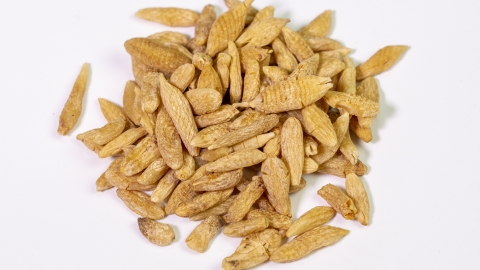Can I drink Ophiopogon japonicus (Mai Dong) when having heat rash?
Generally speaking, individuals with prickly heat rash can consume Ophiopogon japonicus (commonly known as "Mai Men Dong" or simply "Mai Dong"). Specific details are as follows:

Ophiopogon japonicus is a commonly used traditional Chinese herb rich in saponins and other substances, and it has the effect of clearing heat and detoxifying. Prickly heat rash typically occurs in hot and humid weather when sweat excretion is blocked, causing inflammation. In such cases, drinking Ophiopogon japonicus may help relieve symptoms because it can nourish yin, moisten dryness, and clear heat and toxins. Drinking an appropriate amount of Ophiopogon japonicus water may provide some relief for prickly heat caused by internal damp-heat.
However, when choosing to use Ophiopogon japonicus to alleviate symptoms, the patient's constitution should also be considered. For example, individuals with cold-dampness in the spleen and stomach may experience diarrhea or other symptoms when using Ophiopogon japonicus. Infants have an underdeveloped metabolic system and should avoid using traditional Chinese herbs. Those allergic to Ophiopogon japonicus should follow medical advice to prevent allergic reactions.
In daily life, staying cool and ensuring good ventilation, wearing breathable and sweat-absorbing clothing, and maintaining skin cleanliness and care can effectively prevent prickly heat rash. Additionally, traditional Chinese herbs only play an auxiliary regulatory role. If prickly heat develops, it is important to promptly consult a qualified physician, and professional medical treatments should be used when necessary. Traditional Chinese herbs should not be used as a substitute for professional medical care.







